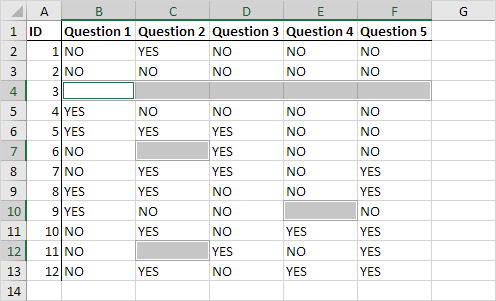Transform Paper Documents into Digital Files Easily

Ever found yourself buried under a pile of paper documents, wishing for a simpler, more organized way to manage them? You’re not alone. In our increasingly digital world, the need to convert these physical papers into digital files is more relevant than ever. Today, we'll walk you through the various methods to digitize your documents effortlessly, ensuring efficiency, accessibility, and space-saving solutions for both individuals and businesses.
Why Go Digital?

Before we delve into the how, let's explore the why behind digitizing your documents:
- Space Efficiency: Reduce the physical space needed for storage.
- Accessibility: Access your documents from anywhere with internet connectivity.
- Safety: Digital backups protect against physical damage like fire or water.
- Organization: Easy to search, sort, and manage digital files.
- Environment: Helps reduce paper use, supporting eco-friendly practices.
🌟 Note: Digitizing documents not only saves space but can significantly increase your efficiency in finding and managing information.
Methods of Digitizing Documents

1. Scanning

Scanning remains the most traditional and widely used method for turning paper into digital. Here’s how you can do it:
- Get a Scanner: Either a standalone scanner or an all-in-one printer with scanning capability.
- Software: Use software like Adobe Acrobat or specialized OCR software for better quality and functionality.
- Preparation: Remove paperclips, staples, and ensure documents are flat to avoid shadows or errors during scanning.
- Scanning: Choose appropriate settings for resolution, color, and file type based on your document's purpose.
- Post-Scan: Organize files into folders, name them appropriately, and consider creating searchable PDFs or adding tags.
📌 Note: High-quality scans can produce document sizes up to 2MB per page at 300 DPI. Remember to adjust settings for optimal file sizes if storage space is a concern.
2. Mobile Scanning Apps

Mobile scanning apps have made digitization accessible right from your smartphone:
- Popular Apps: Apps like CamScanner, Adobe Scan, or Microsoft Office Lens provide high-quality scanning capabilities.
- Functionality: They can automatically detect document edges, correct skew, and enhance readability with features like OCR (Optical Character Recognition).
- Benefits: Ideal for on-the-go scanning, portability, and when scanners are not immediately available.
3. Professional Scanning Services

For large volumes or specialized documents:
- Outsourcing: Companies like Iron Mountain or local providers can scan, index, and return digital copies of your documents.
- Quality Assurance: Often, these services come with data verification and quality checks, ensuring that your documents are accurately digitized.
Steps to Organize Digital Documents

Once digitized, organizing your documents is crucial:
- Naming Conventions: Establish a clear file-naming system including date, type, or category.
- Folder Structures: Create a well-thought-out folder hierarchy to reflect your organization or personal needs.
- Metadata and Tags: Use document properties and tags to make documents easier to find through searches.
- Cloud Storage: Consider uploading documents to cloud services like Dropbox, Google Drive, or OneDrive for access from anywhere.
Securing Your Digital Archives

Digital security is paramount:
- Encryption: Encrypt sensitive documents to protect against unauthorized access.
- Backups: Implement a 3-2-1 backup strategy (3 copies of data, 2 different types of media, 1 offsite copy).
- Access Control: Set permissions and control who can view or edit your digital documents.
- Data Retention Policies: Understand legal requirements for keeping or disposing of digital records.
🔐 Note: Secure your digital documents with encryption and maintain regular backups to safeguard against data loss.
Challenges and Solutions

While digitizing documents has many benefits, here are some challenges you might face:
| Challenge | Solution |
|---|---|
| Initial Setup Cost | Look for all-in-one devices or app subscriptions that might be more cost-effective in the long run. |
| Quality of Scans | Invest in good equipment and use software with OCR capabilities for better readability. |
| Time-Consuming Process | Batch processing or hiring services can speed up the digitization process. |
| Legal and Compliance Issues | Understand the legal requirements for document storage and disposal, and ensure you meet compliance standards. |

In this journey to transform your paper documents into digital files, you’re not just simplifying your life but also embracing a future where information is instantly accessible, securely stored, and environmentally sustainable. The process, while involving an initial learning curve and setup, yields long-term benefits that touch upon various aspects of efficiency and organization. From reducing physical storage needs to enhancing document retrieval and security, the advantages are clear. Digitization isn’t just about converting paper to pixels; it’s about transforming how you interact with and manage information, making your work and life more seamless, searchable, and secure.
Can all documents be legally digitized?

+
Most documents can be digitized, but it’s important to be aware of legal restrictions or requirements for certain types of documents like original contracts, legal paperwork, or official certificates. Always check local laws and compliance requirements.
How long does digitization take?

+
The duration depends on the number and complexity of documents. For large volumes, professional services might expedite the process, whereas personal scanners can take significantly longer.
What’s the best file format for digitized documents?

+
For text, PDF with OCR is preferred due to its searchability and universal compatibility. For images, consider using JPEG or PNG for flexibility and quality preservation.
Do I need to keep the original paper documents after digitizing?

+
Depending on the legal or archival requirements, you might need to retain originals. For non-critical documents, well-digitized and backed-up files might suffice.



